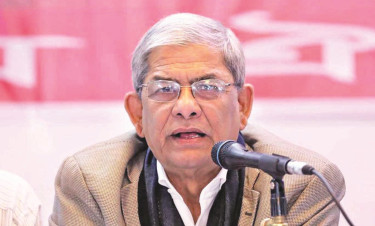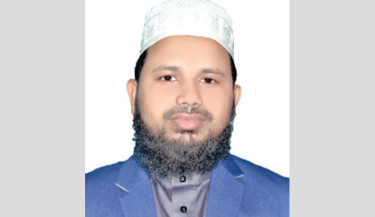More News
Trending
- Agricultural crisis and path to sustainable transformation
- How Zia’s composure helped to navigate hot waters
- Twin exhibitions on EVs, medical tech begin at ICCB
- A Day That Redefined Bangladesh’s Future
- How Zohran Mamdani’s ‘talent for listening’ spurred him to victory in mayoral election
- Concerns grow over election violence
- Bangladesh writes to Malaysia seeking relaxation of three conditions
- From soldier–citizen solidarity to the mass uprising of ’24
- Onion prices skyrocket in Dhaka; from Tk70 to Tk120 per kg
- ICCB buzzes with three concurrent fairs
- National Revolution and Solidarity Day: A Bangladesh of Unity, Freedom, and Prosperity
- Elections to be held in first half of February: Shafiqul
- Not a single taka of laundered funds recovered
- Katrina Kaif blessed with baby boy
- Free and fair polls now vital to practise true democracy: Tarique
- China's exports fall for first time in eight months
- 7 November was a turning point in Bangladesh’s progress: Fakhrul
- November 7 The Struggle for Sovereignty and Bangladesh’s National Reawakening: The Cruel Reality of History
- Youth will once again take to streets if needed: Nahid Islam
- Explosion at mosque in Indonesian capital injures 54 people
- 15 injured in BNP-Gono Odhikar clash in Galachipa
- Jovan, Aisha Khan pair up for ‘Ishara’
- United Group wins ‘Bangladesh Operational Innovation of the Year – Energy’ award
- COP30: Bangladesh demands $1.3 trillion annual climate finance
- Stay alert against false information involving Chief of Army Staff: Army requests public
- Muslim-majority Kazakhstan to normalise ties with Israel
- Trump, in shift, acknowledges Americans are paying ‘something’ for tariffs
- North Korea fires unidentified ballistic missile: Seoul military
- Knowledge, skills, and creativity of people strength of a nation: CA
- China launches its strongest aircraft carrier in naval race with US





